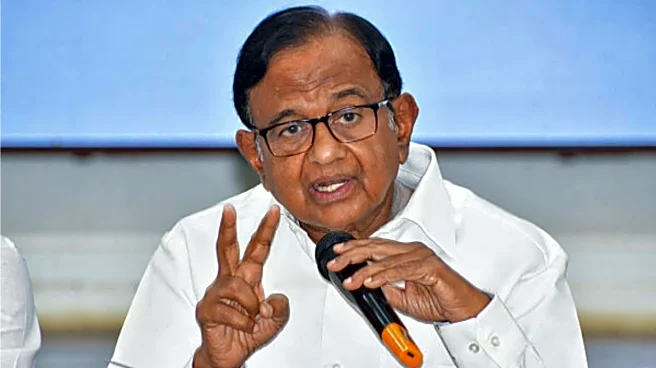What is the story about?
In a major relief to the hospitality sector, the Bombay High Court’s Aurangabad bench has granted an interim stay on the levy of 18% GST on restaurant services situated within hotels where the room tariff exceeds ₹7,500 per day.
The Court has issued notices to the Union of India, the GST Council, and the State of Maharashtra, seeking their responses on whether such a rate differentiation can withstand the test of constitutional validity.
As per the current rate notification, standalone restaurants attract 5% GST. However, if a restaurant operates within a hotel with room tariffs beyond ₹7,500, the rate abruptly increases to 18%. The petitioner contends that this linkage between restaurant tax rate and room tariff is arbitrary, lacking any rational nexus with the nature of services provided, thereby violating the principles of equality and reasonable classification under Article 14 of the Constitution.
Advocate Abhishek A Rastogi, founder of Rastogi Chambers, appearing for the petitioner, argued that “the entire purpose of the GST Council’s decision to fix a lower rate for restaurant services was to make dining more affordable and to pass on the benefit of tax rationalisation directly to the consumer. By imposing a higher rate merely because of hotel tariff, the spirit and intent of this reform are completely diluted.”
Rastogi further remarked that “the concept of GST is built on the foundation of tax neutrality. Similar restaurant services should attract a uniform rate, irrespective of their location. The present system results in distortion and discrimination, particularly when even a one-day increase in hotel tariff subjects the restaurant to 18% GST for the entire year.”
“Such an approach creates absurd results, a family walking in for dinner without availing accommodation ends up paying a higher tax simply because the room inside is occupied for more than ₹7,500 by someone else. This undermines the consumer benefit that the GST Council intended to ensure,” he added.
Industry experts have cautioned that the current mechanism could adversely impact the restaurant business, especially for those operating within hotels where tariffs fluctuate seasonally or are inflated by online travel agents’ mark-ups, factors beyond the hotel’s control. Many fear that the higher rate will discourage footfall, reduce competitiveness, and negate the policy objective of simplifying and rationalising tax structures under GST.
The High Court, acknowledging these concerns, has granted interim relief and scheduled the next hearing for November 19. The case marks a significant constitutional and economic test for the GST framework, one that may ultimately redefine how hospitality services are classified and taxed in India.
Also Read: Diwali in Ayodhya 2025: Preparations underway for Deepotsav 2025 with 22 tableaux, 5 foreign Ramlilas
The Court has issued notices to the Union of India, the GST Council, and the State of Maharashtra, seeking their responses on whether such a rate differentiation can withstand the test of constitutional validity.
As per the current rate notification, standalone restaurants attract 5% GST. However, if a restaurant operates within a hotel with room tariffs beyond ₹7,500, the rate abruptly increases to 18%. The petitioner contends that this linkage between restaurant tax rate and room tariff is arbitrary, lacking any rational nexus with the nature of services provided, thereby violating the principles of equality and reasonable classification under Article 14 of the Constitution.
Advocate Abhishek A Rastogi, founder of Rastogi Chambers, appearing for the petitioner, argued that “the entire purpose of the GST Council’s decision to fix a lower rate for restaurant services was to make dining more affordable and to pass on the benefit of tax rationalisation directly to the consumer. By imposing a higher rate merely because of hotel tariff, the spirit and intent of this reform are completely diluted.”
Rastogi further remarked that “the concept of GST is built on the foundation of tax neutrality. Similar restaurant services should attract a uniform rate, irrespective of their location. The present system results in distortion and discrimination, particularly when even a one-day increase in hotel tariff subjects the restaurant to 18% GST for the entire year.”
“Such an approach creates absurd results, a family walking in for dinner without availing accommodation ends up paying a higher tax simply because the room inside is occupied for more than ₹7,500 by someone else. This undermines the consumer benefit that the GST Council intended to ensure,” he added.
Industry experts have cautioned that the current mechanism could adversely impact the restaurant business, especially for those operating within hotels where tariffs fluctuate seasonally or are inflated by online travel agents’ mark-ups, factors beyond the hotel’s control. Many fear that the higher rate will discourage footfall, reduce competitiveness, and negate the policy objective of simplifying and rationalising tax structures under GST.
The High Court, acknowledging these concerns, has granted interim relief and scheduled the next hearing for November 19. The case marks a significant constitutional and economic test for the GST framework, one that may ultimately redefine how hospitality services are classified and taxed in India.
Also Read: Diwali in Ayodhya 2025: Preparations underway for Deepotsav 2025 with 22 tableaux, 5 foreign Ramlilas
/images/ppid_59c68470-image-176045505177946918.webp)

/images/ppid_59c68470-image-177069510338166467.webp)
/images/ppid_59c68470-image-177069514115616031.webp)
/images/ppid_59c68470-image-177069503136825695.webp)
/images/ppid_a911dc6a-image-17706976242047586.webp)







/images/ppid_a911dc6a-image-177069628112285222.webp)
/images/ppid_a911dc6a-image-177069623890213897.webp)
/images/ppid_a911dc6a-image-177069633713368765.webp)


